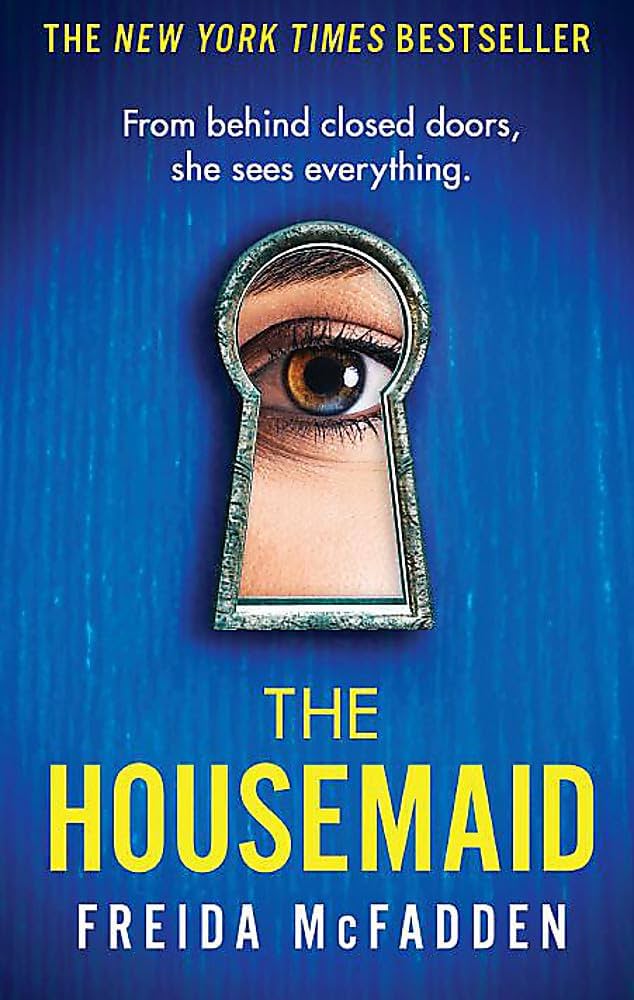Chapter 56
byChapter 56 begins with a powerful, emotional reunion as Nina arrives at Cecelia’s camp, greeted by the sight of her daughter, finally free from the manipulative grasp of her father, Andrew. Cecelia, no longer bound by Andrew’s rigid expectations, revels in her newfound freedom, her body marked by the rough-and-tumble of childhood—scrapes, sunburns, and the kind of carefree spirit that only comes from being unburdened. The joyful reunion between mother and daughter is filled with the warmth of long-anticipated liberation, a brief moment where hope seems within their grasp. Nina, secretly prepared for this escape, has mapped out a new beginning for them, one that will start with a dream of a visit to Disneyland—a place of magic that fills Cecelia with excitement and joy, marking the first step into a life they can share without fear or constraint. Yet, even in the midst of this emotional high, Cecelia’s fleeting thoughts turn to her father, Andrew, a painful reminder of the unresolved trauma of their past. Nina, ever the protective mother, reassures Cecelia that Andrew will not be part of their lives moving forward, providing a measure of solace and the promise of a future untainted by his influence.
However, as the chapter progresses, Nina’s sense of liberation is complicated by a call from Enzo, a figure from her past who brings news that will once again shift the trajectory of her life. Enzo informs her that Millie, a key player in Nina’s plot for revenge against Andrew, is in trouble. Although Nina initially dismisses Millie’s predicament as a natural consequence of her involvement in the revenge scheme, Enzo’s concern about Millie’s increasingly erratic behavior and her possible confinement forces Nina to reconsider. This revelation forces Nina to face the unintended consequences of her earlier decisions, realizing that Millie, who had been a pawn in her pursuit of vengeance, may now be caught in a dangerous situation. This internal conflict builds as Nina grapples with the moral weight of her past actions and the realization that the web she wove for Andrew has ensnared others. The chapter dives deep into Nina’s emotional turmoil, exploring the complexities of seeking freedom while also having to confront the negative ripple effects that come from one’s choices. It is clear that Nina is struggling to reconcile the desire for a fresh start with the burden of past mistakes and the responsibilities she has for those affected by her decisions.
The chapter’s tension builds as Nina is forced to confront the reality that the pursuit of justice—while giving her personal satisfaction and a sense of freedom—has complicated her life in unexpected ways. The relief of leaving Andrew and the hope for a new life with Cecelia are clouded by the guilt that weighs heavily on her heart for the role she played in Millie’s current crisis. The narrative skillfully examines the duality of freedom, showing that while liberation may seem like a victory, it often comes with a heavy price that requires one to account for the consequences of their actions. Nina’s dilemma becomes not just about her escape but about her moral responsibility for those who were hurt in the process. As Nina contemplates whether to heed Enzo’s call and return to Millie’s aid, the narrative highlights the complexity of human choices and the often-unseen aftermath of our decisions. In this poignant chapter, the theme of redemption and the long path toward emotional resolution is explored, as Nina realizes that true freedom may not just involve escaping the past, but also accepting the responsibility of those we leave behind. The chapter is a deep meditation on sacrifice, accountability, and the endless struggle to balance personal liberation with the reverberating consequences of one’s actions, offering a nuanced reflection on what it means to truly be free.


